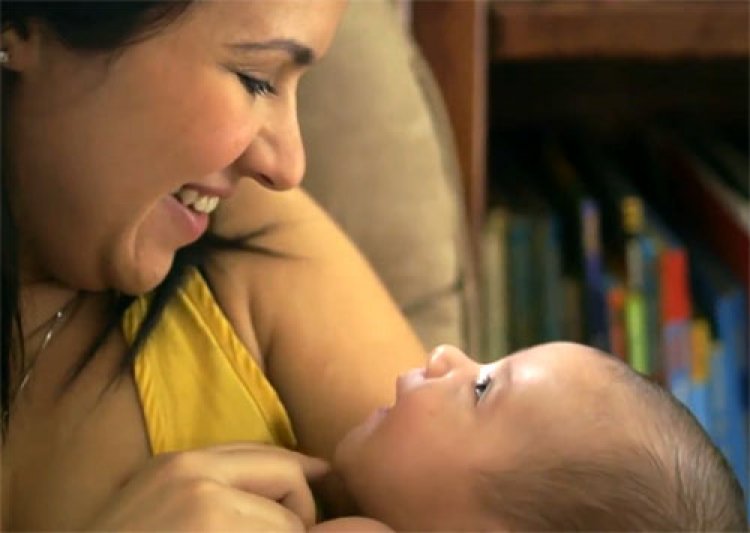Mother child and xylitol
The mother's caries risk is drastically reduced by xylitol, and this means less risk for the newborn

Although caries is a common disease, no one is born with caries!
The term caries is well known in dentistry and refers to an acid-induced decomposition of the tooth hard substance (enamel, dentin and cementum). The outer layer of the tooth, the enamel, consists almost entirely of minerals. The main components of the teeth are calcium and phosphorus, which are mainly responsible for the mineralization of the tooth, enamel and gums.
How does caries develop?
There are four factors that are essential for the development of caries: Bacterial Streptococcus mutans, plaque (lack of oral hygiene), food (especially sugar) and time. The breakdown of carbohydrates is caused by bacteria in plaque. An acidic climate is created in the mouth. A perfect circumstance for caries bacteria. In order to defend themselves and neutralize this acid, individual minerals are slowly dissolved from the enamel layer. This is called decalcification and weakens the enamel.
The stronger the acid attack, the more numerous the bacteria and the more frequently the sugar is absorbed. The amount of sugar and the frequency of sugar consumption are crucial to the development of tooth decay. Tooth enamel is constantly subjected to two opposing processes: destruction and dissolution (demineralization) on the one hand, and repair (remineralization) on the other.
Simply put, saliva and alkaline minerals maintain the teeth and continuously repair the tooth surface. The bacterial breakdown of sugars and acids (e.g. fruit juices) counteracts this effect. The acid-base balance is disturbed, so that the tooth does not have sufficient capacity for remineralization. The enamel begins to dissolve and caries develops. If the dissolution of minerals from the tooth surface is not stopped, the teeth begin to decay (caries).
Every mother loves her child, and physical closeness and contact are essential for the child's healthy development. Therefore, if she kisses the child often and tries its food, it is important that she has a healthy oral flora so as not to infect the child with caries bacteria. Newborns are especially susceptible to infections. It is important not to feed young children refined sugar. In the Turku study from 2000, 3 groups of pregnant women were studied.
The first group: mothers with a sugary diet and normal hygiene. The second group: mothers who took fluouride and chlorhexidine 4 times a day. The third group: mothers who took birch sugar 4 times daily in addition to fluouride and chlorhexidine. Normal dental cleaning was performed in all three control groups. The result was that the mothers in group 3, who took xylitol 4 times a day, had 71-74% fewer cavities than the other two groups, even though they ate the same food. Scientists have proven that xylitol is useful in fighting tooth decay. The mother's caries risk is drastically reduced, and this means less risk for the newborn.
That is why we recommend in particula pregnant women and mothers to prevent tooth decay and maintain a healthy oral flora with the tooth crystals for themselves and especially for their children.
